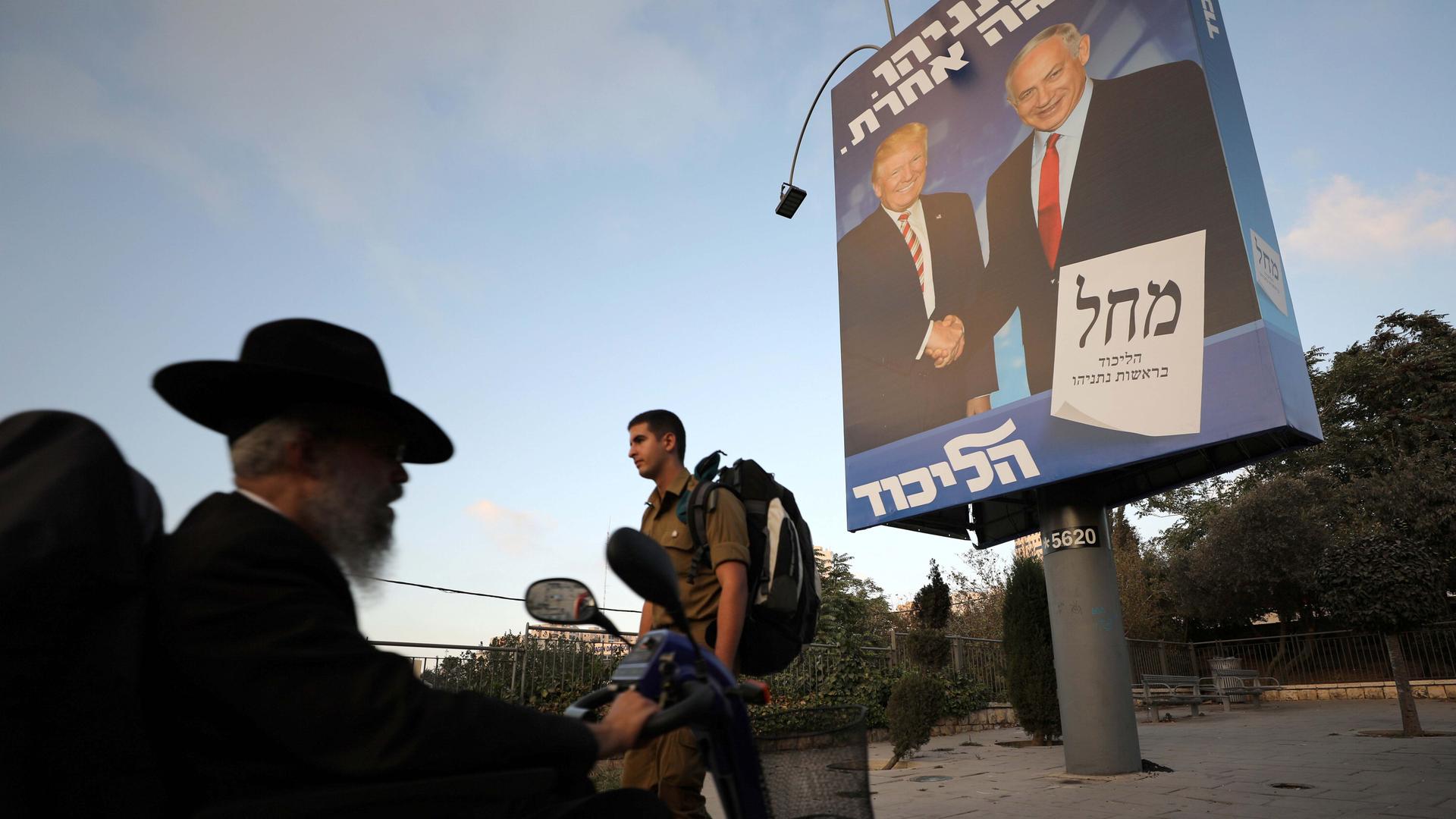Role of religion top of mind in Israeli election
Israelis took to the polls Monday for the third general election in 12 months. Exit polls Monday afternoon showed a clear lead for the right-wing party of Prime Minister Benjamin Netanyahu. A win for Netanyahu, who appears on the cusp of a parliamentary majority, also represents a win for his key political allies, the ultra-Orthodox parties, who have been fighting to preserve the religious character of the public sphere.
The battle between secular and Orthodox parties has led Israel to a political deadlock which has lasted more than a year. One key issue is ultra-Orthodox Jews serving in the Israeli army: Military service is compulsory for Jewish 18-year-olds, but only a small percentage of the ultra-Orthodox actually serve.
The role of religion in state affairs was top of mind for many Israelis as they cast their ballots Monday.
Related: Jerusalem’s ‘green’ cable car plan is challenged in Israel’s top court
Hundreds of ultra-Orthodox young men crammed into a giant study hall last week in Beit Shemesh, a town about half an hour outside Jerusalem, for a political rally. They listened as rabbis urged them to vote.
“We come out here to support the religious parties and to support the Torah and the religious people.”
“We come out here to support the religious parties and to support the Torah and the religious people,” said 31-year-old Yehuda Bron, who attended last week’s rally. He said he would vote for United Torah Judaism, one of the big ultra-Orthodox parties. Bron said the nonreligious parties want to exclude the ultra-Orthodox population from Israeli politics, and change their way of life.
Meanwhile, supporters of secular parties told The World they were worried Israel’s religious parties have gained too much influence in the government.
Lena Kagan, who said Monday she voted for Blue and White, Israel’s largest secular party, said the issue of military service was important to her at the ballot box.
Related: Palestinian analyst says Trump’s Middle East peace plan is a ‘scam’
“It’s strange that there is a group of people who are privileged not to contribute to the society or to the country the same way as other groups of people have to,” she said. “My kids have to go to the army, and their kids can just sit and learn. So, this is such a basic lack of equal rights that is unbelievable.”
Click on the “Listen” button above to hear this story.
The article you just read is free because dedicated readers and listeners like you chose to support our nonprofit newsroom. Our team works tirelessly to ensure you hear the latest in international, human-centered reporting every weekday. But our work would not be possible without you. We need your help.
Make a gift today to help us reach our $25,000 goal and keep The World going strong. Every gift will get us one step closer.
